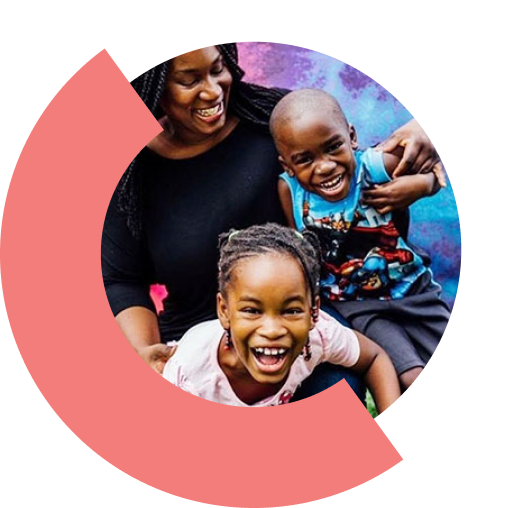
Who We Help
What happens in the first six years of life will determine the fate of the adult brain. The brain is still developing until at least our 40s, so new developmental symptoms may not emerge until we are 20, 30, 40 or even older. Through the years, our specialist has seen many children and adults with a broad spectrum of disorders and conditions, including but not limited to:

- Attention deficit hyperactivity disorder (ADHD)
- Autism spectrum disorders, including non-verbal
- Dyslexia
- Traumatic brain injury
- Dyscalculia
- Dyspraxia
- Memory Loss
- Some neurodegenerative disorders
- Mental, attention, behavioral and learning disorders
- Physical and nutritional issues
Why Early Assessment Matters
Example: Attention deficit hyperactivity disorder (ADHD) In ADHD, hyperactivity results from overactive areas in the left hemisphere of the brain, making for too much motor activity, tics or stims.
Attention deficit stems from under activity in the same area on the right hemisphere, which is responsible for the poor sustained attention.
The answer? To inhibit the left side of the brain and activate the right side. To accomplish this, we must also inhibit the primitive reflexes and build balance and stability in the body, starting with the large muscles along the spine. As our bodies develop, initial spinal movements allow us to rollover, crawl and eventually stand upright. Next, we build our inner-ear vestibular balance system, which allows us to walk and maintain balance. Finally, our eye motor system enables us to move our eyes and keep them stable as we walk and move. An imbalance in these systems means there will be an imbalance in the nervous system and brain. Generally, this is known as nerve interference but in the brain, it’s called functional disconnection.

Attention Deficit Hyperactivity Disorder

ADHD results from overactive areas in the left hemisphere of the brain, making for too much motor activity.
Attention Deficit Hyperactivity Disorder (ADHD) presents challenges in social processing, adaptive functioning, and executive control for children. These difficulties often impact learning in school, with struggles in concentration, listening, and motivation in the classroom.
These challenges extend to daily life at home, leading to the emergence of negative behavior patterns.
The restlessness, fidgeting, and poor focus associated with ADHD can be linked to the unintegrated Spinal Galant Reflex, which plays a role in stimulating hip mobility and range of motion development.
At our center, we specialize in addressing ADHD through a comprehensive approach:
- Reflex Integration targets non-integrated reflexes, including the Spinal Galant Reflex, identified through assessment.
- Hemispheric Integration focuses on addressing functional disconnects within the weak hemisphere.
We also employ cutting-edge techniques to ensure optimal outcomes for our patients.
Dyslexia

Receiving a diagnosis of dyslexia for your child can understandably provoke concern. However, there’s ample reason for optimism—many children with dyslexia excel academically and in their later lives! With the appropriate dyslexia support, it’s feasible to cultivate stronger reading skills and surmount learning obstacles. Even adults grappling with dyslexia can enhance their reading abilities. At Maive Brain, we’ve assisted individuals across all age groups dealing with dyslexia and other reading disorders. Drawing from extensive expertise in aiding clients with reading challenges, we’ve meticulously developed our programs through rigorous research and practical application in this domain.
Although brain training doesn’t serve as a cure for dyslexia, it has proven beneficial for empowering both children and adults with dyslexia to become more proficient readers. Our reading and reading comprehension programs encompass assistance with:
At Maive Brain, our brain training plans are meticulously tailored to address the unique needs of each learner. For individuals encountering reading difficulties across various age groups, we prioritize identifying the underlying causes of these challenges.
Research indicates that the majority of individuals with dyslexia struggle with phonological dyslexia, characterized by difficulties in identifying sounds in written language and phonetically decoding words. This difficulty is rooted in a cognitive skill known as auditory processing.
While auditory processing is a prevalent cause of dyslexia, it’s essential to recognize that other cognitive skills, such as visual processing, may underpin reading difficulties in individuals with surface dyslexia.
At Maive Brain, we craft customized training plans for every learner. By conducting a comprehensive review of the learner’s history and administering assessments, we can pinpoint and strengthen the precise cognitive skills necessary for each individual reader’s improvement.


Autism Spectrum

How autistic brains are built differently.
There is a maturational imbalance.
That is the single most important thing. We know that most kids with autism there is no injury to the brain. The is no metabolic or genetic mutation.
So what is the actual problem?
The problem is that gap in development. What leads to that primarily is those retained reflexes.
Autism Spectrum Disorder (ASD) presents challenges, but it also brings unique strengths. Many of the world’s most talented artists, inventors, and intellectuals are on the spectrum, attributing their success to their distinct cognitive profiles. With the appropriate support, skills, and resources, individuals with autism can flourish. Thus, it’s crucial to access tailored assistance for both children and adults with ASD.
ASD impacts communication, behavior, and social interaction. Children with ASD often exhibit restricted interests and engage in repetitive behaviors and routines. Additionally, they may face challenges at home, including irregular sleep patterns, agitation, and conflicts within the family dynamic.
Furthermore, individuals with ASD commonly experience issues related to low muscle tone, leading to difficulties such as walking, maintaining proper posture, fatigue, and chewing problems.
Sensory Processing Disorder

This disorder disrupts the brain’s ability to effectively interpret sensory inputs.
Stimuli encompass everything we see, hear, smell, taste, or touch. Those with this condition typically exhibit heightened sensitivity to one or more of these sensations. For children affected by abnormal sensory sensitivities, everyday activities like bathing, sleeping, or performing household tasks can become daunting. Inadequate management of sensory environments often leads to heightened anxiety levels or behavioral issues in children with sensory disorders. However, interventions targeting vagal nerve activity and enhancing sensory habituation can help mitigate this challenge.
Physical impediments are also common in individuals with sensory disorders. They may experience low muscle tone resulting in poor posture, difficulties in fine motor skills impacting tasks like writing in school, and delays in communication and social skills development.


Speech delay

Speech delays often occur when there’s a problem in the areas of the brain that control the muscles responsible for speech. As a result, children may struggle to produce sounds because they can’t coordinate their lip, tongue, and jaw movement.
When the brain doesn’t communicate with facial muscles, a condition called apraxia,
children can’t move the muscles needed for speech. Another oral-motor disorder, dysarthria, occurs when the muscles controlling the face, lips, and tongue are too weak to work properly.
Occasionally, we all encounter challenges in expressing ourselves or grasping the words of others. However, for individuals with speech and language disorders, these obstacles occur more frequently and prominently. Through tailored speech or language assistance, individuals facing these difficulties can acquire techniques to enhance their communication abilities.
At Maive Brain, our brain training programs are designed to address the foundational cognitive skills associated with speech and language. Presently, about 1 in 9 learners at Maive Brain seek our support for speech or language delays.
Traumatic Brain Injury (TBI) Recovery

Navigating the recovery journey from a concussion or traumatic brain injury (TBI) can prove challenging. Particularly when essential cognitive skills, like memory and concentration, exhibit slower-than-desired progress. Our concussion assistance and TBI training programs offer clients the opportunity to address memory and concentration deficits through specialized brain training techniques.
Traumatic Brain Injury refers to a condition where external force induces changes in brain function or inflicts damage to the brain.
Children who have undergone a traumatic brain injury may encounter:
- Cognitive changes: - Impairments in various abilities, including thought processing, speech, physiological function, motor function, and social behavior. - Language difficulties, communication deficits, vocabulary loss, and difficulties in acquiring new knowledge.
- Physical changes: - Diminished muscular coordination - Challenges with swallowing - Complete or partial paralysis


Enhance Memory (Memory loss)

Nobody possesses a flawless memory. Whether it’s misplacing keys or struggling to recall a new acquaintance’s name, occasional forgetfulness is a common occurrence. However, if you notice an increase in forgetfulness, memory training might offer a solution. At MAIVE BRAIN, we focus on improving both short-term and long-term memory through specialized brain training, yielding enhanced memory skills for numerous clients.
Brain training isn’t limited by age—it can bolster memory skills in children as young as four and provide adults with an avenue to fortify their memory abilities as they age. While brain training doesn’t serve as a remedy for age-related memory decline, our programs enable older adults to target specific memory skills. Each client receives a personalized memory training regimen, tailored to address their unique requirements.
What is cognitive impairment?

Cognitive impairment is when you have problems remembering things and solving problems. Cognitive impairment is not an illness. It can be caused by many conditions.
You may struggle with:
remembering things
paying attention
speaking or understanding
recognizing people, places or things
experiencing new places and situations — you may become overwhelmed
Cognitive impairment can come and go. Cognitive impairment can go from mild to severe.
What are the symptoms of cognitive impairment?
If someone you know has cognitive impairment, you may notice:
• They sometimes feel confused, agitated or distressed
• A change in their speech or behaviors
• That they struggle to finish their daily tasks


Auditory Processing Disorder (APD)

A disorder of the auditory (hearing) system that causes a disruption in the way that an individual’s brain processes what they are hearing.
This may cause issues at home due to the child’s inability to process simple auditory information coming from family members in the form of:
– Instructions, questions, or even simple conversation.
These challenges can continue into their school environment as well. Children with APD may have difficulty understanding learning instruction, reading, writing, and spelling. It is common for these children to also have low muscle tone and struggle with activating their core and postural muscles.
The most important reflex to integrate for a child with an auditory disorder is the ATNR (Asymmetric tonic neck reflex) and STNR (symmetric Tonic Neck Reflex).
In this case we use a combination of:
– Reflex Integration to address the non-integrated reflexes described above, more reflexes will be uncovered through the assessment process.
– Hemispheric Integration to work on the weak hemisphere, to address the functional disconnect present
In addition to other cutting-edge techniques to get the best results.
